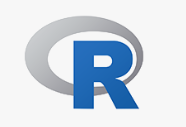
R Consortium Expands Code to Meet Data Demand

An industry group promoting expanded use of the R programming language for data analysis, modeling and visualization is launching a series of initiatives designed to identify infrastructure projects that would forge standards and best practices for R code.
The Linux Foundation’s R Consortium said last week it would fund seven R community projects and form two technical working groups to implement infrastructure projects while also promoting best practices. The initiatives respond to the growing popularity of R code that is expected to grow along with data demand.
The consortium announced a second round of grants that follow the first awarded in November 2015 to R-Hub, a developer and tester of R packages. The seven new projects for developing R tools and resources will bring the grant-funding total to $200,000.
The seven grants are distributed among industry and university researchers developing various big data and analytics implementations for R code. They include:
- A team from Hewlett Packard Enterprise (NYSE: HPE) and the company’s laboratory along with a computational biologist at Genentech ((NYSE: DNA) developing a “unified framework” for distributing computing in R. “This project will develop a common framework to simplify and standardize how users program distributed applications in R, ultimately reducing duplication of effort,” the consortium said.
- A researcher from ETH Zurich will focus on improving R database interfaces. The project addresses current “vague” specifications for data type transformation, error conditions and return values that often result in data analysis errors. “This project aims to improve database access in R so that porting code is simplified and less prone to error,” organizers said.
- A team of Oracle (NYSE: ORCL) researchers will tackle R implementation during a one-day workshop funded under the grant program and designed to identify R language development and tooling opportunities.
- Researchers from Cornell University’s Weill Cornell Medicine of Qatar and the London School of Economics and Political Science were also awarded a grant to expand R language usage by translating R packages into languages other than English. The localization project also would make it easier for R developers to include translations in their own packages.
- A researcher at the University of Muenster in Germany will use a “simple features” spec backed by the Open Geospatial Consortium to develop an R-based tool to simplify analysis of geospatial data.
- A team from Software Carpentry will host a two-day training course on the basics of R programming. The course seeks to address growing demand for R language training resources, R Consortium noted.
A series of regional conferences also is planned to address the growing R user community.
Meanwhile, two new R programming-language working groups will focus on standardization and best practices. One will assess current native app usage while developing a “verifiable” API to help drive R language adoption, the consortium said. A second working group will develop a “code coverage” tool designed to address platform limitations in existing tools while promoting the testing of source code to reduce software bugs.
Founding members of the R Consortium include Alteryx, Google (NASDAQ: GOOG, GOOGL), HPE, Mango Solutions, Microsoft (NASDAQ: MSFT), Oracle, RStudio and Tibco Software.
Recent items:
Microsoft Offers R Server for Academic Research
Consortium Makes Business Case For R Language






























